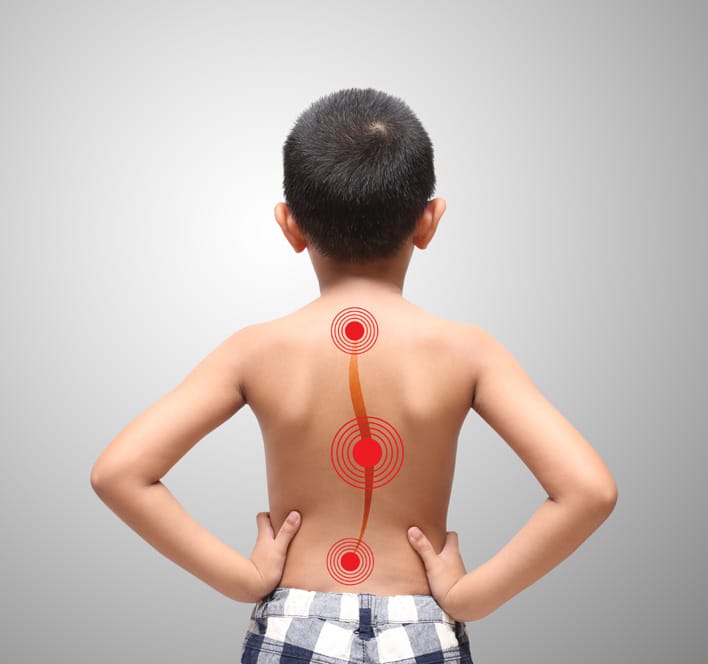Everyone wants to live their best and most healthy life. However, conditions like scoliosis may prevent you from living a healthy life. Scoliosis is an abnormal lateral curvature of the spine that may lead to pain, fatigue, and other symptoms that may disrupt your normal life. Unfortunately, scoliosis is primarily a natural condition, and in most childhood cases, the cause is unknown. However, other factors such as age, spinal cord injury, various disorders, and vertebral abnormalities may cause your back to curve.
If you notice your back or that of your child looks curved or have been diagnosed with scoliosis, you may wonder whether it’s possible to live a normal, healthy life with the condition. NJ Spine & Orthopedic is here to help you answer any questions you may have about how to live with scoliosis.
How to Live a Healthy Life with Scoliosis
Scoliosis may sometimes lead to discomfort, pain, and difficulty with movement. In some severe cases, it can make it difficult for the lungs to function properly. However, most people with scoliosis can live a healthy life. Here are a few steps you can take to live a healthy life with this condition:
1. Exercise Regularly
While it may seem intimidating to exercise due to the pain, exercising can significantly help with your condition. You can start with stretches every morning, going to the gym, doing yoga, or regularly walking around. This can help restore some of the imbalances of scoliosis.
If you’re unsure what to do, you can sign up for personal training and other rehabilitation programs specifically for people with scoliosis. It’s important to consult your doctor or physical therapist before starting any exercise program to ensure it’s safe and appropriate for your condition.
2. Eat a Healthy Diet
Maintaining a healthy lifestyle is crucial in living a healthy life with scoliosis. This includes eating a balanced diet and anti-inflammatory meals, which can help you control your pain. You should remember to combine a healthy diet with regular exercise to avoid excess weight, which can stress your spine.
It’s also important to supplement your diet with vitamins, especially vitamin D, which can improve bone density and boost spinal health. You should ask your doctor to recommend supplements to help reduce scoliosis pain.
3. Manage Pain
Pain and discomfort are the major problems preventing some people with severe scoliosis from living their best lives. Therefore, severe scoliosis patients need to utilize various pain management techniques to help reduce the pain caused by this condition.
This includes physical therapy, medications, and alternative therapies, such as acupuncture or massage. Talking to your doctor about which treatments may be right for you is crucial. Living with less pain is essential to living a healthy life.
4. Seek Medical Treatment
In most cases, scoliosis is mild and may not initially require treatment. However, it’s a progressive condition that, if left untreated, can lead to chronic pain and life-threatening conditions such as heart and lung problems. Therefore, apart from managing scoliosis through the natural therapies mentioned above, you may be required to pursue other forms of scoliosis correction treatment.
The type of treatment depends on the severity of the curve, spinal maturity, and location of the curve. Common medical treatments for scoliosis include:
- Bracing: Wearing braces can help prevent the curve from progressing. A doctor can only recommend bracing for patients who haven’t reached skeletal maturity. These are mostly children whose curve is between 25 degrees and 40 degrees.
- Surgery: Surgery is recommended for severe scoliosis and adults who have reached spine maturity. In children, surgery is recommended when the spinal curve is greater than 40 degrees or shows signs of progression. For adults, surgery is crucial if the curve is greater than 50 degrees and the patient shows signs of nerve damage in their legs, fatigue, difficulty breathing or standing, and bladder symptoms.
Unfortunately, scoliosis is a structural spine condition that cannot go away naturally. You’ll need some form of treatment to slow the progression, prevent the long-term deliberating effects, and possibly correct the condition. Therefore, if you see an unusual curvature on the spine, it’s vital to seek professional help on the most suitable course of treatment.
Consult an Experienced Scoliosis Expert at NJ Spine & Orthopedic
Generally, an individual can live a healthy life with scoliosis. This requires a combination of proper medical care, a healthy lifestyle, and self-care practices. However, severe scoliosis can significantly affect a patient’s daily life. While severe instances are rare, there is a possibility of scoliosis worsening with age. That’s why it’s crucial to correct the condition as early as possible.
At NJ Spine & Orthopedic, our team of experienced doctors may be able to treat your scoliosis problem and help prevent future complications. Our specialists will screen and evaluate your condition and help you to have a normal and active life. Our Concierge Team can also help you manage every aspect of your appointments to help lessen your stress. If you or your child shows signs of scoliosis, call us at (866) 553-0612 or schedule a free scoliosis consultation to begin your treatment and get your life back.

